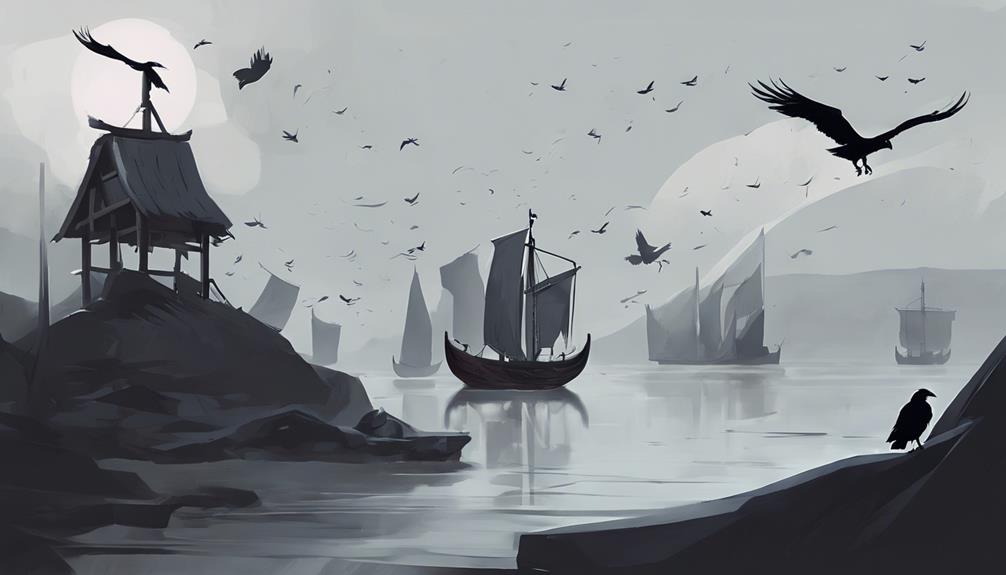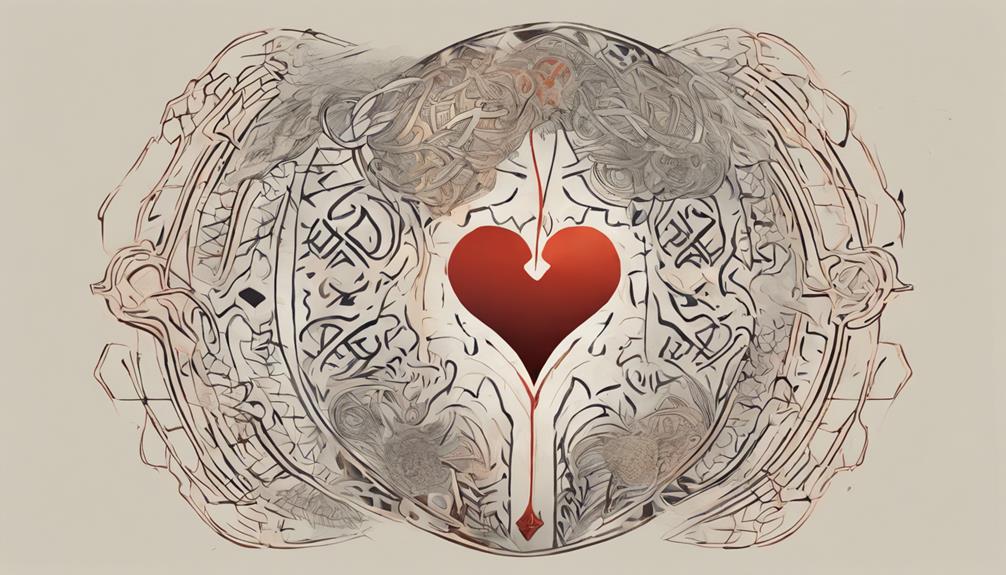Summary
- 1 Origins of the Old Norse language
- 2 Mythological and folkloric influences
- 3 Everyday expressions and phrases
- 4 Legacy of Old Norse in modern language
- 5 Intriguing meanings of Old Norse words
- 6 Frequently asked questions
- 6.1 What was the role of Old Norse in medieval literature?
- 6.2 How did Old Norse influence Modern English?
- 6.3 Are there any famous poets or writers from ancient Norse literature?
- 6.4 Has Old Norse Had a Significant Impact on Other Languages?
- 6.5 Is it possible to learn and speak Old Norse fluently today?
Immerse yourself in the fascinating world of the Old Norse language, where words like 'berserk' e 'ransack' have ancient meanings. Delve into the depths of this rich linguistic fabric, where 'thrall', 'slaughter' and 'skirmish' reveal fascinating connections. These words not only offer historical understanding but also enrich your knowledge of English vocabulary. The legacy of Old Norse continues to shape our language with stories of gods and mythical creatures incorporated into our everyday expressions. Discover the fascinating meanings of these words as you discover their profound impact on modern English.
Origins of the Old Norse language

Let's delve into the fascinating origins of the language Old Norse. Old Norse is a North Germanic language spoken by the inhabitants of Scandinavia and their overseas settlements during theViking Age. The language has its roots in the Proto-Norse, spoken in the northern region around 200 AD. Over time, Old Norse evolved into distinct dialects, such as the Norse Old West and the Norse Ancient Oriental.
The Old Norse language was written using therunic alphabet, known as the Futhark. This alphabet was composed of characters called runes and was used for inscriptions on stone monuments, personal objects and for communication. The Runic alphabet played an important role in the preservation of ancient Norse language and culture.
Old Norse underwent significant changes due to influences from other languages, such as Old High German and Old English. Despite these influences, Old Norse remained a distinct and influential language in the medieval period. Its impact can still be seen today in modern Scandinavian languages such as Icelandic, Faroese, and Norwegian.
Mythological and folkloric influences
Investigating the mythological and folkloric influences that shaped the Old Norse language reveals a rich web of stories and beliefs. Norse mythology, with its great stories about gods such as Odin, Thor, and Loki, played a significant role in shaping the language. For example, many Old Norse words have direct connections to these mythological characters. The influence of folklore can also be seen in the language, with creatures such as trolls and elves making their way into everyday language.
The Old Norse language often used mythological elements to convey deeper meanings. For example, the word 'ragnarok,' meaning 'fate of the gods,' refers to the apocalyptic battle in Norse mythology. This connection between language and mythology underscores how intertwined the two were in the culture of ancient Norway.
Folklore also left its mark on the language, with phrases such as 'going berserk' originating with the fierce Viking warriors known as berserkers. These influences show how deeply rooted mythological and folkloric beliefs were in the everyday life of the Norse people.
Everyday expressions and phrases

Examining the influence of mythological and folkloric beliefs on language ancient Nordic, you can discover a variety of everyday expressions and phrases that are rooted in these rich narratives. For example, the phrase 'go berserk' originates from the berserker, fierce warriors of the Norse sagas who fought with uncontrollable rage. When you say someone has a 'irritable temperament', you may not realize that this expression comes from the Old Norse word 'skammhals', meaning 'short-necked,' used to describe someone with an irritable temper. Even the word 'hell' finds its roots in Norse mythology, as it was the name of the goddess of the afterlife in Norse cosmology. These everyday expressions show how deeply embedded ancient Norse language and culture is in our modern vernacular, serving as a reminder of the lasting impact of these ancient stories on our everyday language.
Legacy of Old Norse in modern language
The legacy of the Old Norse in the modern language is evident in a multitude of words and expressions that have become seamlessly integrated into everyday English. From simple pronouns such as 'they,' 'their,' and 'them' to more complex terms such as 'berserk' e 'rake', the influence of Old Norse is substantial. Even the days of the week in English have strong links to Old Norse, such as 'Wednesday' derived from the Norse god Odin, known as Woden in Old English.
In addition, Old Norse left a lasting imprint on the English language through place names. Places ending in '-by' such as. Grimsby e Whitby derive from Old Norse, where 'by' meant village or settlement. The word 'mate,' commonly used to refer to a companion or colleague, comes from the Norse word 'felagi,' which meant partner or shareholder.
In essence, the legacy of Old Norse in the modern language is vast and deeply rooted in everyday speech, showing the rich history and linguistic evolution that have shaped the English language we use today.
Intriguing meanings of Old Norse words

Discover the fascinating meanings of Old Norse words that have found their way into modern English, shedding light on the vast linguistic heritage that continues to influence our daily use of the language.
Immerse yourself in the intriguing meanings of some Old Norse words that still resonate today. The table below shows some examples:
| Word of the Old Norse | Equivalent in Modern English | Meaning |
|---|---|---|
| Berserk | Berserk | Frantic warrior |
| Ransack | Ransack | To thoroughly search and loot |
| Thrall | Thrall | A slave or servant bound to service |
| Slaughter | Slaughter | Brutal killing |
| Skirmish | Skirmish | A minor battle or conflict |
These words not only bring historical context but also add depth to the language we use on a daily basis. The next time you use these terms, remember their roots, dating back to the vibrant language of Old Norse speakers.
Frequently asked questions
What was the role of Old Norse in medieval literature?
In medieval literature, theAncient Norse played a significant role because of its influence on the sagas, myths, and epic poems. These tales often revolved around heroic deeds, gods, and folklore of Norse culture. Integrating the language and themes of the Old Norse, the medieval writers added depth and richness to their works, creating a unique blend of storytelling that captivated audiences of the time. This integration of Old Norse elements helped shape the literary landscape of the medieval period.
How did Old Norse influence Modern English?
Influencing modern English, theAncient Norse has left a lasting mark on vocabulary and grammar. Words such as 'sky,' 'window' and 'egg' have their origins in Old Norse. Even English sentence structure, with its order subject-verb-object, was influenced by Old Norse. This historical connection enriches the English language with a unique depth and diversity, showing the impact of the cross-cultural interactions On linguistic evolution.
Are there any famous poets or writers from ancient Norse literature?
Certainly, there are several famous Old Norse poets and writers worth investigating. One well-known figure is Snorri Sturluson, famous for his contributions to Norse mythology and sagas. Another renowned poet is Egill Skallagrímsson, celebrated for his powerful and emotional verse. These authors have left a lasting imprint on Old Norse literature and continue to inspire modern storytelling.
Has Old Norse Had a Significant Impact on Other Languages?
Old Norse had a significant impact on other languages, influencing English vocabulary such as 'sky' and 'egg.' It also shaped the development of Scandinavian languages. The sagas and poems written in Old Norse offer valuable perspectives on medieval Scandinavian culture and history. Its influence persists in modern English and Scandinavian languages, demonstrating the enduring impact of Old Norse on linguistic evolution.
Is it possible to learn and speak Old Norse fluently today?
You can definitely learn and speak Old Norse fluently today with dedication and practice. Although it may take time to master this ancient language, there are resources available to help you along the way. Online courses, textbooks, and language exchange programs can all help you on your path to fluency. By immersing yourself in the language and practicing consistently, you will be able to speak Old Norse with confidence in no time.
